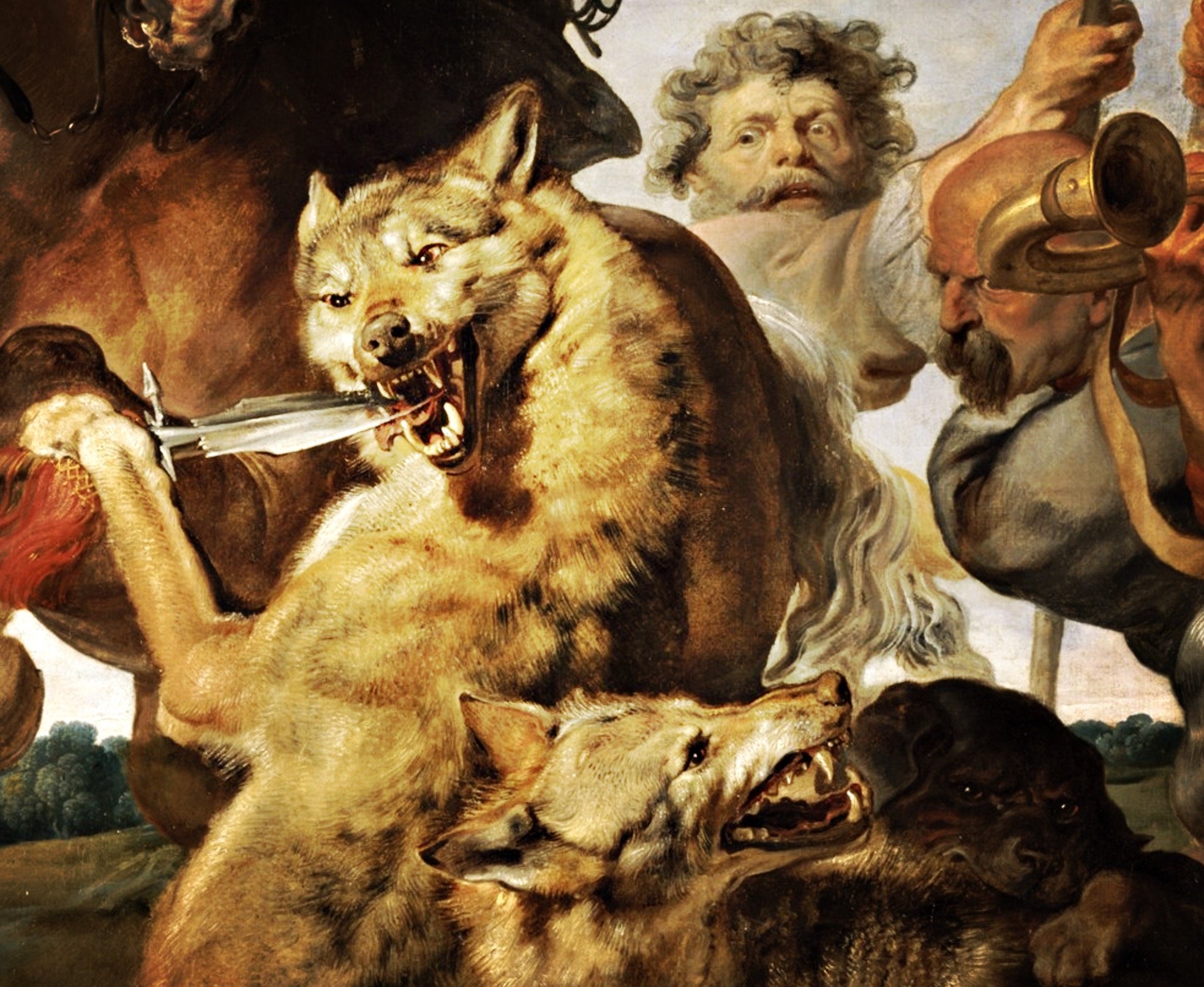The Idleness of Wolves
I.
You know, some people simply aren’t built for idleness, and I am one of them. The thought of lying on a beach all day, sitting in a café for hours, or letting time pass aimlessly at a campsite makes my stomach cramp. Watching hours slip away over mediocre cake and even more mediocre coffee at family gatherings is the repetitive, annual ordeal that leaves me and my kind utterly drained and hopeless. And don’t even get me started on weddings, parties, and other ‘memorable nights out’! If anything, a proper funeral is to be embraced, at least we get to be on a cemetery and people aren’t as noisy.
Believe me, I am not a misanthrope. I love people, in minimal doses and carefully selected. Maybe I struggle to take in more because my heart is only covered with a thin layer of Jupiter’s lustre? Underneath lies a thick black muscle knot of Saturnian mass. Or perhaps it’s because my mind is a quarry of questions, from which new boulders are constantly tumbling down into the valley of the moment?
To me, life is a treasure trove, a cabinet of miracles, a hall of mirrors in which we are only allowed to spend a very limited amount of time in order to learn, to understand, and make a few feeble steps out into our own life. Trust me, I am not condemning idleness and leisure, vacation, or public holidays. Quite the opposite: I embrace and endorse all the spare time on this planet! Those fine days when we shed our uniforms, suits and blues, and crawl up into our libraries, pot of excellent coffee at our side, researching issues that seem marginal and weird to the world – certainly they do to our bosses and neighbours – but burn us up! Hell, researching, reading, note taking, grinding and brewing more coffee, discussing insights with ourselves, going for long walks, lighting incense in the woods, asking the spirits to lean in – all of this takes an incredible amount of time! And by then we haven't even written a word, not performed a rite, not jumped out over the edge of experience yet – we have just re-packed our working hypothesis jumpsuit!
I guess this brings us to the questions of joy and maybe more importantly peace?
It seems to me that these are the two core experiences many people have when they sit at the long family table, dance at the party with friends, listen to the sound of the sea for hours, or spend a night gambling in Vegas. To encounter joy and peace, normal people seem to prefer a social group setting, within which they hold a place that is recognised and cherished by many. A place that surrounds them with people who also prefer spending time with them rather than in the quarry of their own minds.
The issue I run into frequently then is that normal people like to think that this is true for every healthy human individual. Whenever this is not the case, they conclude that something is seriously wrong with them. According to this common logic, since my early teenage years all sorts of diagnostic labels have been assigned to me. I found myself in all kinds of drawers of social disabilities, only because my sources of joy and peace differ rather starkly from the common norm. Yes, my joy and peace take root in the marginal periphery of others, the outskirts of society, where I happily form an outpost of one or two, without parties, dance, cocktails and other kinds of entertainments.
I guess it makes sense: if your happiness centres on the acceptance by others, people who prefer solitude are considered a threat. The true outsider, who feels at ease away from the social center, isn’t seen as simply different but is instead labeled as flawed and in need of treatment to avoid questioning the absoluteness of one's own way of life. This results in a simple yet painful inherent formula according to which social outsider found themselves treated: my deviation from the norm threatens your compliance-bound self-worth, so I have to be healed or – if that doesn’t work – stigmatised as sick.
II.
We are currently experiencing a kitsch[1] revolt against the degenerate form of modern capitalism most of us participate in: idleness is experiencing a new bloom and is held up as the antidote to a life that seems breathless, joyless, peaceless in the constant stranglehold of efficiency, performance and social relevance. Do your mindfulness exercises, this new revolt instructs to us, lie on the sofa in the sun, go on aimless walks, start writing without goal or reason, paint a picture just to throw it away, cut through your addiction for productivity and find the flow in any moment of existence. In short: let it all go for a while, go wide and idle, and the fuck exhale.
Let me tell you: that is not my path to joy and peace. Of course, we need an antidote to the apocalyptic Calvinist-Protestant work ethics we encounter so prominently these days. Working as if there were no tomorrow and our soul’s judgement depended upon it. And certainly, there is some common sense here: when I am tired, I go to bed. When I am exhausted, I rest. When I begin to develop a dependency or craving too hard for anything, I go on a lent. These are simple household rules that don’t require books to be written and read, but sufficient self discipline to be taken seriously – every day.
These simple rules of thumb describe the background of all of our lives: a constant oscillation between too much and too little that we are not meant to master. We oscillate between a state of carefully rebalancing, replenishing, renourishing – only to consciously throw ourselves off balance again in a giant leap forward. Look at a pack of wolves, how they exert all of their energy in the hunt, in long-distance territory patrol, in raising their pups, in mating, or escaping predators. They don’t hold back, but hold fast to what establishes their lives, all claw and teeth. Then they oscillate into the opposite state, one that might look like idleness to the outside, but really is about resting and sleeping, about thermoregulation and digestion, about energy conservation or waiting for the optimal condition for the next hunt.
Idleness in itself is nothing to the wolves, unless it appears as an instinctive state of recovery or preparation. I would apply the very same logic to our species of human animals: Idleness is not a source of joy or peace in itself, but only in oscillation with its opposite, and only in adequate doses. For just because I am well rested, I won’t be happy. Just because I stopped overworking, I won’t be at peace. Just because I gained back a busload of time by radically reducing my social media time, doesn't mean I know how to do something meaningful with this time yet. When idleness is presented as a silver bullet for achieving deep-seated joy and peace, we’re mistaking a shallow version of the good life for merely avoiding being self-destructive.
So. Idleness is a necessary and momentary antidote for when we overwork, when we strain our muscles too hard, or when we try to grab too much of life at once. I inject idleness into my life in response to an extreme – for it is an extreme in itself. I allow myself to be useless for a while, when I have used up too much of myself before. I allow myself to go empty for a while, when life has been too full before. Idleness is a palate cleanser of rather radical nature, a compensator for over indulgence in the storms that is our life.
III.
Peace and joy, to me at least, need to do more than being an antidote, than alleviate the poison, than resetting ourselves to ground level again.
The wolf is at peace with the dead chamois in its mouth. The wolf knows peace when the cubs relieve the pressure of milk on her teats. The wolf experiences peace when it roams its territory in the thick snow and in the company of its pack. We imagine the wolf as peaceful in those moments when she can live out her wolfishness to the full.
Do what thou wilt, the Thelemites say. And in doing so, they present us with one of the greatest, perhaps the greatest, mysteries of our own species. For at some point and somewhere in the course of his evolution, Homo sapiens accumulated so much power over their environment that they freed themselves from the conditionality of their environment. Now man no longer needs to sleep for eight hours, but drinks coffee and takes a few uppers before going to work. There is no more hunting, no more circling the territory, no more falling asleep breathlessly, even though our archaic bodies long for it. We have lost our place, or rather, we have given it up for a loan of temporary freedom. Our instincts are weak and mostly misguided in the modern world. We can no longer throw ourselves into our humanness like a wolf into their wolfishness to encounter peace and joy. We have to find our own path now, each of us, back under the skin of the animals we are. Here, in the midst of skyscrapers, crossroads, wailing sirens and the hope of a distant holiday of perhaps a few days, where we will surely be able to put our feet up idly.
The trick to mastering idleness, I think, is best found by first deeply experiencing its proper opposite: joyful, meaningful, total exhaustion, the ability to lose oneself so passionately in an activity, to express oneself as raw and wild as the wolves and the swans and the bees and the tree at night when it is silent with the birds in its branches. Our problem is not the absence of idleness, but the misunderstanding of good work. When the wolf works, she howls. When the bee works, she dances. When we work, what do we do? May we all be able to answer it with two words one day: focussed ecstasy.
So, at least from where I stand, I would not encourage you to seek more idleness initially, but rather the opposite: Hold fast!, I shout to you, then let our ship sail out into the ocean of expression that fills us most with joy and peace. Let’s find our kind of ecstasy, in our kind of every day. Let’s not go Buddhist yet, let’s go Promethean for another decade or two. We can still worry about karma, when we can no longer howl with the wolves.
Footnote
[1] I am using the term kitsch here in the sense of Milan Kundera, when in his book The Unbearable Lightness of Being (1984) he states “[...] kitsch is the absolute denial of shit, in both the literal and the figurative senses of the word; kitsch excludes everything from its purview which is essentially unacceptable in human existence.”

